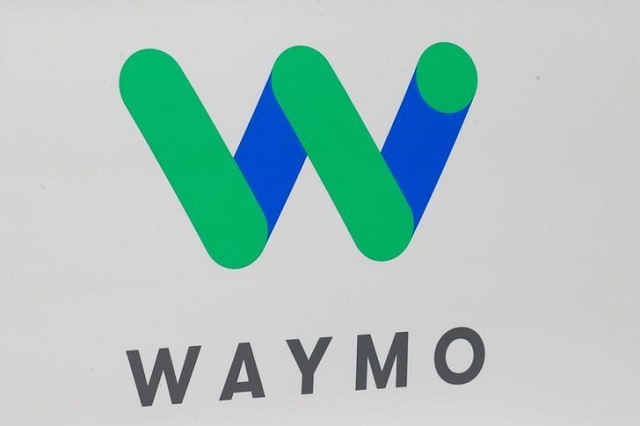
The Alphabet subsidiary is testing complimentary Wi-Fi in its robotaxis in greater Phoenix, where hundreds of the company’s identical, driverless minivans have been carrying paying riders since December. In late April, Waymo launched ad-free music streaming for passengers through Google Play Music, its parent company’s answer to Spotify and Apple Music.
Waymo also has appealed to families with non-tech perks: It has installed a child car seat in every minivan and ensures vehicles arrive cooled to a precise 72 degrees in Arizona’s desert heat.
Waymo revs up self-driving car making near Motor City
The aim is persuading passengers that the company’s ride service, dubbed Waymo One, is less stressful than driving their own cars or riding with its rivals. Chatty or sketchy drivers and vehicles that vary in size and cleanliness are top gripes among fans of ride-hailing apps.
“When I push the Waymo button I know exactly the product I’m buying,” said Jordan Ranous, 26, a Phoenix bank analyst who said he takes four Waymo round trips each week.
The city of Chandler, about 20 miles southeast of Phoenix, last month began allowing staffers to expense Waymo rides for work-related trips with an eye to boosting worker productivity.
Waymo’s challenge is to prove that hospitality and connectivity can generate profits. Waymo currently charges rates comparable to Uber and Lyft, whose reliance on fares has those firms bleeding red ink.
Eliminating drivers would slash Waymo’s labour costs. Consistent, quality service might enable the company to charge higher fares, while the internet, music and video streaming could generate extra fees or ad sales. Wall Street investment analysts have estimated Waymo’s value at more than $100 billion, assuming in-car services contribute revenue.
“Those who win this space are going to have the most convenient solution and the best experience,” said Mark Boyadjis, a global auto technology lead at research firm IHS Markit.
Waymo said its core business is charging for rides, not advertising during them. Providing “personalisation” perks creates a sense of freedom, it said.
“Whether you want to catch up on emails or jam out to some of your favourite tunes using our music integration, we encourage riders to make this space their own,” spokeswoman Julianne McGoldrick said.
Uber and Lyft, both of which are developing self-driving capabilities, declined to comment. Automotive firm Aptiv Plc, which has a year-old operation in Las Vegas with 30 robotaxis, said it does not offer in-car entertainment.
INTERNET TEST
Waymo’s Chrysler Pacifica minivans currently ply a 100-square-mile territory around Phoenix. More than 1,000 users are participating in the trial, the largest of its kind in the nation. They request rides through Waymo’s app.
The Wi-Fi, which has not been previously reported, is available to a subset of users who get to test features but are barred by Waymo from talking publicly about their experience. Two riders told Reuters they first noticed laminated fliers with Wi-Fi instructions in vans in April.
Whether Wi-Fi proves a big enticement remains to be seen. After all, riders can browse the web on their own smartphones.
Still, Waymo users say Wi-Fi would allow them to work on their laptops or stream video once the company allows longer-distance rides.
The city of Chandler, which has budgeted $30,000 over the next year for employees’ Waymo fares, said its workers are not in the Wi-Fi test. Still, they stand to benefit from making full use of their phones during rides, something they are restricted from doing behind the wheels of city cars, economic development manager Micah Miranda said.
Workers must document their activities during each Waymo ride. The goal is measuring productivity gains, something Chandler has not tracked with employees travelling via Uber or Lyft, Miranda said.
Waymo declined to disclose when Wi-Fi testing began, its internet speeds or its providers. The company did say its network has no usage restrictions and that any data it collects from passengers is governed by its general privacy policy.
‘NO CURVEBALLS’
Waymo said all riders can play ad-free music through the minivan’s speakers without fees. Riders select among eight playlists on seatback touchscreens or tap “I’m feeling lucky” to hear a different collection of songs.
Passengers can link their Waymo and Google Play Music accounts to listen to playlists they create. Two Waymo users told Reuters they joined the Google service for this reason.
Others enjoy the opportunity to collect their thoughts while not feeling obliged to interact with a driver. Human drivers are present in each Waymo minivan in case of emergency, but they refrain from speaking during trips.
Waymo to expand fledgling self-driving car service
“My favourite thing is it’s calm and peaceful,” said Arizona passenger Allison Lewis, who goes on date nights using Waymo twice a month.
Passengers say they also like the identical set-up of each van, which can seat three adults and two kids. A child car seat is installed in the back row; a booster seat is nearby if needed. Charging cables are ready to go.
“My five year old digs our robot car,” customer Ranous said. “There’s no curveballs.”






1719640649-0/BeFunky-collage-(77)1719640649-0-270x192.webp)










COMMENTS
Comments are moderated and generally will be posted if they are on-topic and not abusive.
For more information, please see our Comments FAQ